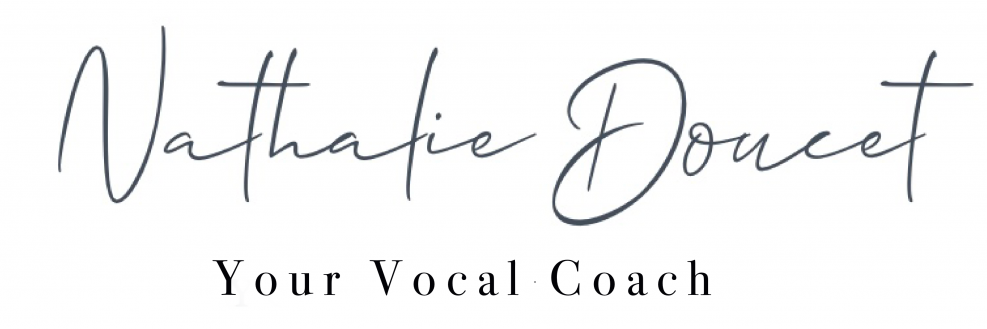What is Vocalic Harmonization?
Maybe you have heard this term before, or perhaps it is new to you. When I coach people for the first time, it always seems like they are familiar with Vocalic Harmonization, but they are not sure how to use it. It is a term used in linguistics when applying the rhyming of closely related vowels in the same or words that follow each other. It is also known as “vowel harmony”. The practice of vocalic harmonization is most often used in the French vocal repertoire for linguistic refinement and ease of vocal production. Most frequently in French singing, we harmonize [ɛ] with [e] and [œ] with [ø]
For example: “aimer” [ɛˈme] becomes [eˈme] or Heureux [œˈrø] becomes [øˈrø]
As you can see in the examples above, the unstressed, open vowel-sound closes to rhyme with the following stressed, closed vowel, not the opposite. Remember, it is the final syllable that is stressed in French, except when that syllable is a schwa-sound [ə] because a schwa can never be stressed. In this case it is the syllable before the schwa that gets the stress.
les, tes, ses, mes, ces…
the possibility of vocalic harmonization also exists in closing the [ɛ] in short words such as les, tes, ces, etc. (these are articles or possessive adjectives). When a closed vowel immediately follows these, they can be closed to an [e].
For example: les étés [lɛz‿eˈte] would become [lez‿eˈte]
The article “les” is harmonized to the closed [e] in “étés”
These harmonized syllables must never be accented or overly closed, and at times they only are slightly closed on the way to their closed neighboring vowel-sound, and over-closing the harmonized vowel can result in obscuring the text. The idea is that it should feel natural and sound authentic since vocalic harmonization occurs in everyday speech but not deliberately. Many native French speakers do not even realize that they are doing this.
Some French words are almost always harmonized. For example, the following words would have all open vowels in the first syllable if we followed the diction rules, but they are sung and spoken with vocalic harmonization:
aimer (to love) [ɛˈme] becomes [eˈme]
baiser (to kiss) [bɛˈze] becomes [beˈze]
heureux (or heureuse) (happy) [œˈrø] becomes [øˈrø]
Vowel harmonization should not be systematic. It is a completely optional choice left to the singer. In cases where it can help the legato line, it is recommended to harmonize the vowels as sometimes it is easier to get through a phrase with fewer vowel changes.
For example:
Let’s take a look at “Lydia” by Fauré. In this text we find this line: “Laisse tes baisers de colombe”
The “tes baisers” can be sung as all closed [e] but the “laisse”” remains an open [ɛ] because the vowel following it is not a closed vowel.
[lɛsə tɛ bɛˈze] becomes [lɛsə te bɛeze]
Speak it out loud both ways and see the difference for yourself.
I would also go further and say if you have an article or possessive adjective (les, des, mes, tes ses) and the following word begins with a closed [o] or any vowel that has a closed feeling such as [i], [ø] [õ] [y] or [o], you can apply vocalic harmonization.
Again in in “Lydia by Fauré:
“Lydia, sur tes roses joues” you can harmonize the “tes” which would typically be [tɛ] to a closed [te] to match the closed [o] sounds of [rozə]. But, the “mes” in “mes amours” in the same song stays [ɛ] because a closed vowel-sound does not follow it.
Here is the text of Fauré’s Lydia where I will highlight the vocalic harmonizations:
Lydia, sur tes roses joues
Et sur ton col frais et si blanc
Roule étincelant
L’or fluide que tu dénoues;
Le jour qui lui est le meilleur
Oublions l’éternelle tombe
Laisse tes baisers de colombe
Chanter sur ta lèvre en fleur.
Un lys caché répand sans cesse
Une odeur divine en ton sein;
Les délices comme un essaim
Sortent de toi, jeune déesse
Je t’aime et meurs, ô mes amours,
Mon âme en baisers m’est ravie
O Lydia, rends-moi la vie,
Que je puisse mourir toujours!
In this recording of Véronique Gens and Roger Vignoles, you can hear the use of vocalic harmonization as highlightede above.
Try not to over-use vocalic harmonization. Remember, it should not obscure the text, and it should be helpful to the singing. If you are not sure if something should be harmonized or not, ask your French diction coach, or listen to several recordings to see what the consensus is. Just know that some coaches don’t apply vowel harmony and there are differing opinions on the matter. Since it happens in everyday speech, and I have seen it help so many singers in their legato and ease of singing, I generally encourage vocalic harmonization when appropriate.

